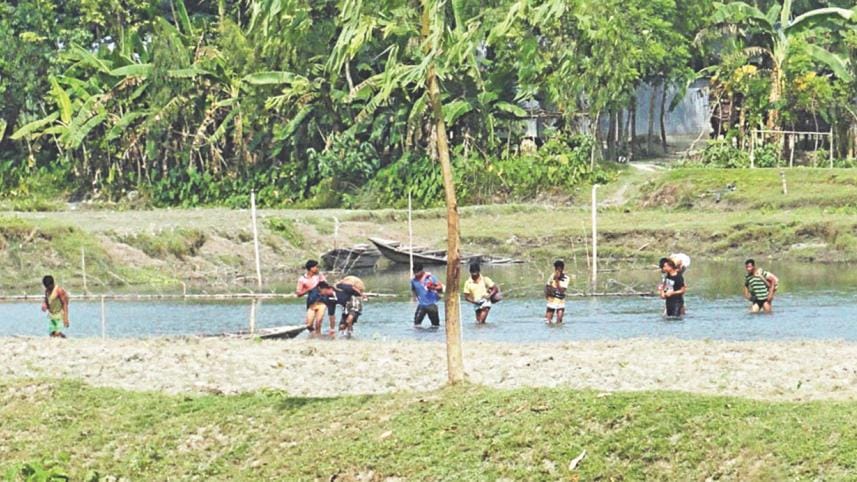Smugglers find easy route

“For each phensedyl bottle we carry over the border,” says drug mule Robiul Islam, 24, of Lalmonirhat sadar upazila's Mogholhat, “we are paid 20 taka.”
Along with other portions of Lalmonirhat's international border that have not been fenced by India, Mogholhat has become a drug smuggling hotspot. “We transport drugs round the clock,” Islam says, “but especially at night.”
The border between the northern district and India stretches for 360 kilometres, of which nearly 75 kilometres are unfenced, primarily due to the obstruction of rivers. It's geography from which smugglers benefit.
As a result, the area between border pillars 924 and 927 in Mogholhat, which lies adjacent to Jari Dharla, Daribas and Nagatari villages in Dinhata of India's Cooch Behar district, has become notorious as a drug smuggling safe haven.
“We never face any obstruction from either BGB or BSF personnel,” says Islam, “The border is open.”
In Aditmari upazila's Durgapur meanwhile, where similar border conditions prevail, Dibar Ali, 30, is also engaged as a drug mule. “We are only the transporters,” he says, “not peddlers or syndicate men.”
He says that smuggling of commodities other than drugs is minimal, due to similar prices between the two countries preventing profits from reaching levels equivalent to those achieved in the drug trade.
Ali also claims the syndicates which organise the trade have reached an understanding with law enforcement agencies in both countries.
Aware of the prevalence of cross-border drug smuggling, the commanding officer of 15 BGB battalion in Lalmonirhat Lieutenant Colonel Bajlur Rahman Hayati says special drives are conducted by the BGB in the open border areas, which also include the Angarpota-Dahagram, Sree Rampur, Shamsernagr, Panbari and Burimari areas of Patgram upazila.
“To defeat the drug smugglers, we have proposed to set up additional camps with greater manpower in these open border areas,” says the Lieutenant Colonel. “The proposal is currently under consideration.”
 For all latest news, follow The Daily Star's Google News channel.
For all latest news, follow The Daily Star's Google News channel.
Comments